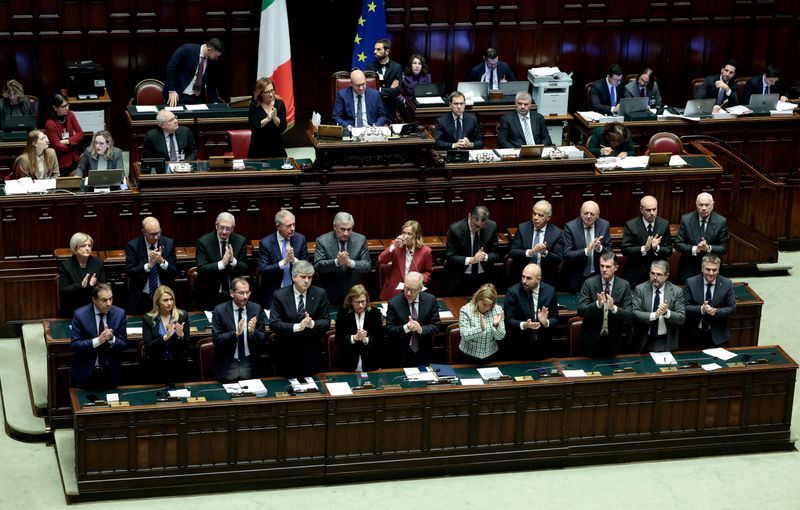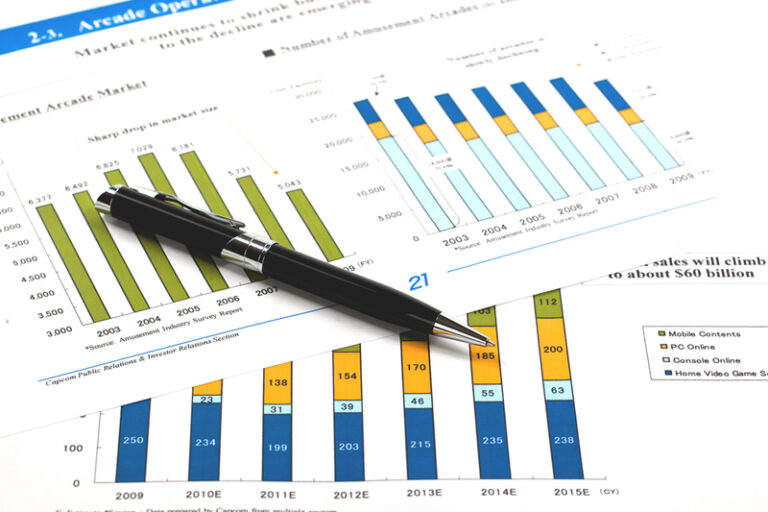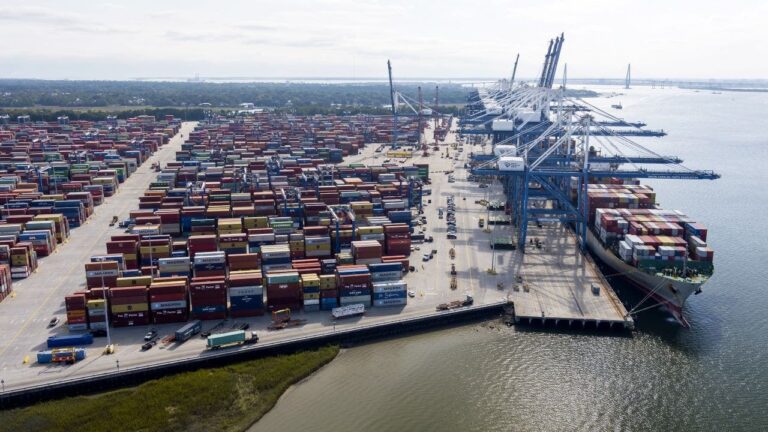Analysis-Italy’s bonds poised for gains at expense of Germany and France in 2025 By Reuters
By Antonella Cinelli and Valentina Consiglio
ROME (Reuters) – Italy’s uncharacteristic political stability is likely to boost its government bonds next year, analysts said, as uncertainty over Germany and France erodes investor confidence in them.
While much of the risk that made Italian bonds the highest-yielding in the euro zone remains, markets are focused for now on the potential of Rome’s 2.5 trillion euro ($2.62 trillion) debt market, one of the world’s largest.
While the eurozone’s third-largest economy has stalled and its debt pile, the second-biggest in the currency bloc, is forecast to grow by 2026, for many investors the French and German spat seems more immediate.
“Italy is no longer considered the sick man of Europe,” said Christopher Dembic, senior investment adviser at Pictet AM.
As long as that view prevails, Italy will have lower debt costs. The stakes are high, with Rome likely to sell 300-310 billion euros of medium- and long-term bonds next year.
The yield gap between Italian BTPs and German bonds narrowed to a more than three-year low this month, and with Germany on the verge of recession, bond experts expect this trend to continue and possibly accelerate.
Markets are also viewing Italy’s relatively high-yielding BTPs as an attractive alternative to French OATs as Paris grapples with budgetary and political turmoil.
Japanese investors in particular are now switching from French to Italian debt, Dembick said.
RISKS:
Italy’s government has cut its deficit under EU directives, but markets see austerity plans by Prime Minister Giorgia Meloni, firmly in power after two years in office, more persuasive than France’s chaos.
With yield spreads tightening in the eurozone, Althea Spinozzi, head of fixed income strategy at Saxo Bank, said a previously “unthinkable” narrowing of the BTP-Bund spread to zero is now possible.
However, headwinds can derail such a scenario.
Italy’s weakening economy could derail promised fiscal consolidation, falling yields due to ECB rate cuts could make Italian paper less attractive, or a return to global risk provisioning could hit BTPs.
Another risk is France itself, Aymeric Goody, co-manager of French asset management company Carmignac, told Reuters.
“So far, the French political and fiscal crisis has had no impact on the wider European spreads, but if it accelerates into a financial crisis, BTPs will not be immune,” Goody said.
And while most analysts predict steady demand for BTPs through 2025, few share Spinozzi’s scenario.
UniCredit strategist Francesco Maria Di Bella said the BTP-Bund spread, which hovered around 115 basis points on Wednesday, was unlikely to fall below 100 bp.
Germany, which has been hit by an industrial recession that could be worsened by US President-elect Donald Trump’s promised tariffs, faces a second consecutive year of recession in 2024 and an election in February.
Ratings:
Meanwhile, credit rating agencies could play a significant role in 2025, analysts said, with a forecast of tighter spreads likely to trigger improvements for Italy and other peripheral countries.
“Agencies can be easier to reward than to punish,” said BBVA ( BME: ) fixed income strategist Filippo Mormando.
Fitch and DBRS upgraded Italy’s outlook to positive in October, while leaving its rating unchanged.Moody’s (NYSE:), which unexpectedly downgraded France this month, continues to rate Rome just one notch above junk, but with a stable outlook. :
Another key factor in Italy’s fortunes will be whether it can continue to meet policy “milestones and targets” to receive tens of billions of euros from a COVID-19 recovery fund with the European Union, analysts said.
So far, Rome has qualified for regular payments, but has done worse at investing them effectively.

“Growth in 2025 will depend significantly on how well the Recovery Fund money is spent,” said Paolo Pizzoli, senior economist at ING.
($1 = 0.9525 EUR)
(Graphics by Stefano Bernabei; Editing by Gavin Jones and Alexander Smith)








